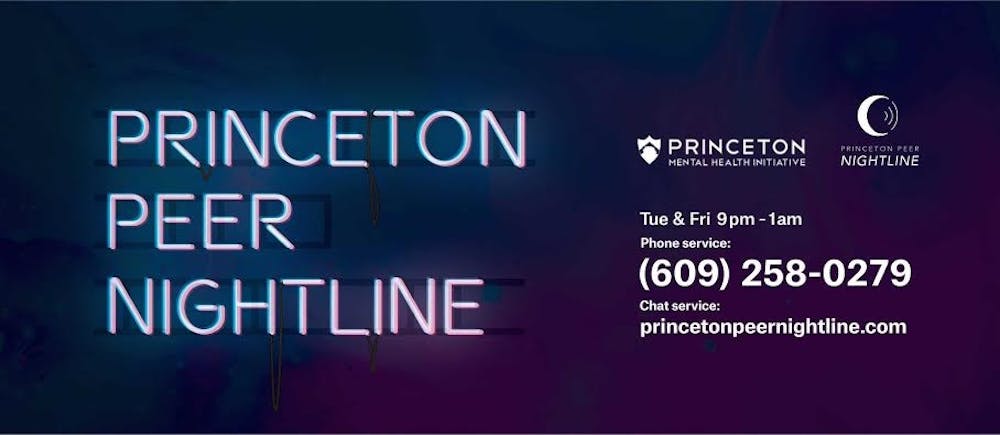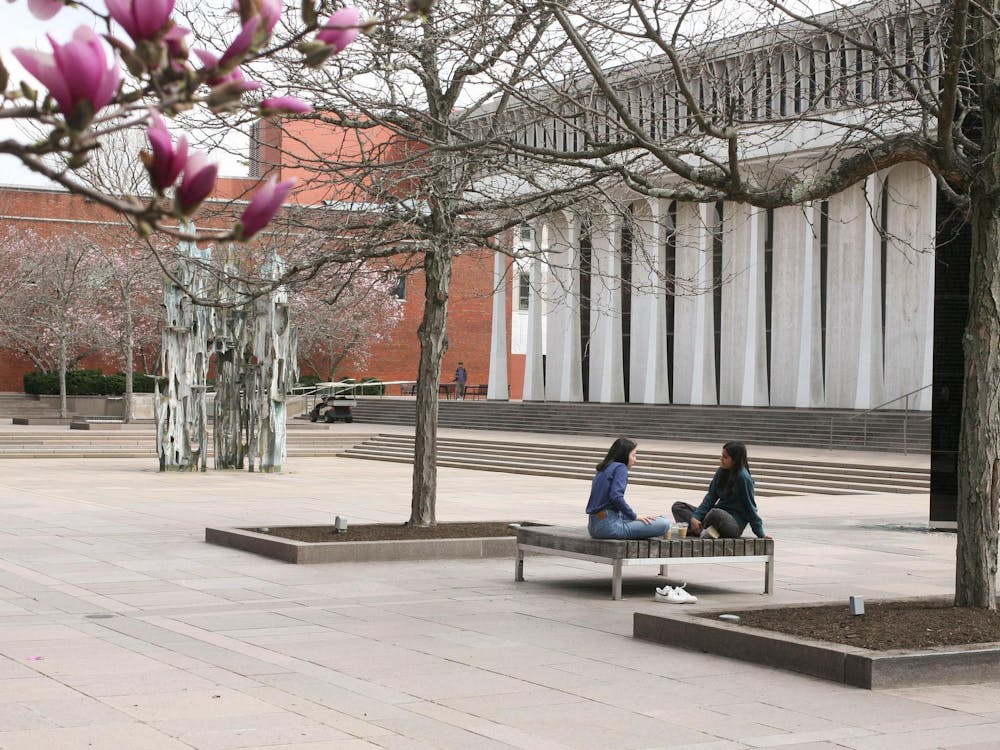Rarely can students find a place to share what is weighing on their minds without worrying about the consequences of what they are disclosing. Princeton Peer Nightline, a peer-run, confidential, and anonymous call and chat service run by volunteers, offers just that. Open on Tuesday and Friday nights, the network offers an empathetic ear for students struggling with a wide variety of issues.
“Compared to last year, [PPN has] grown a lot,” said Christin Park ’18, one of the founders of the service. “Definitely, every time we’ve been open, we’ve been having a good number of calls and chats.”
Park and the other founders attribute this growth in part to increased awareness because of advertising, as well as to changing the days the hotline is open.
Listeners and chat responders for the service are anonymous, as are users, to allow students to speak freely without fear of being judged or of their worries’ becoming known to other people.
Though it was open on Friday and Saturday nights during its pilot last spring, PPN is now open on Tuesday and Friday nights this semester. This decision was made with the intention of making the service possible for one day during the week and for one during the weekend.
An anonymous volunteer with the hotline noted, “We are confidential, but, like, at the same time they know that we are students, so I think they can talk to us about things that they can’t talk to adults about, and get … a more sympathetic, empathetic perspective.”
Another appeal is that peers are better able to understand the specifics of callers’ and chatters’ concerns. Anonymous volunteers described common subjects of discussion this semester, including imposter syndrome, academic stress, eating disorders, and other topics that have specific nuances particular to the University.
“All of our listeners have been trained by a nationally certified suicide hotline like CONTACT. But to supplement that we have our own training for Princeton-specific issues,” said Park.
“I think the hardest part is being able to tell them that, like, 'It’s okay you’re having these thoughts because everyone has them,'” said an anonymous volunteer. “But also being, like, ‘Your problem matters.’”
PPN was created in March 2017, but its conception came a year and a half before that. Park, Julie Newman ’18, and Shana Salomon ’18 were sophomores involved in the Princeton Mental Health Initiative when Salomon came up with the idea for the service.
“We were looking for project ideas, and then Shana had this idea, of bringing something like CONTACT, like a hotline thing, to Princeton, but have it be more like an open, empathetic peer-listening resource,” said Park, referring to another local crisis and suicide prevention hotline.
Park, Newman, and Salomon spoke extensively with Counseling and Psychological Services, residential college staff, and University administration in order to plan their program.

“We started meeting with people from the University,” said Park, “to make sure that we could implement this resource effectively. That being said, they don’t have access to our calls or anything like that. They wanted to make sure that it would be a good peer resource for mental health issues.”
“Sometimes, I think [students] want just to have somebody that sympathizes with them,” said Director of Student Life for Mathey College Darleny Cepin, who has been particularly involved in PPN's development because of her previous work with a similar program at Columbia.
For Cepin, this network is important because it allows students to talk to their peers who can relate to how they are feeling.
“This isn’t something that works best all the time from the top down,” said Cepin, adding, “It’s also sort of like a student movement in which we normalize the fact that struggling or having human struggles.” Cepin explained that the shared aspect of PPN makes it a community aspect everyone can talk about.
As Nightline continues to grow, Salomon anticipates eventually offering the service every night of the week and partnering with groups like the McGraw Center for Teaching and Learning and the University’s LGBT Center.
“The measure of success of a program like this is just that there’s a resource like this that exists, it’s not how many calls we get,” said Salomon. “Because just the idea that something like this exists, it’s really comforting, that you can always go to someone and it’s available.”








